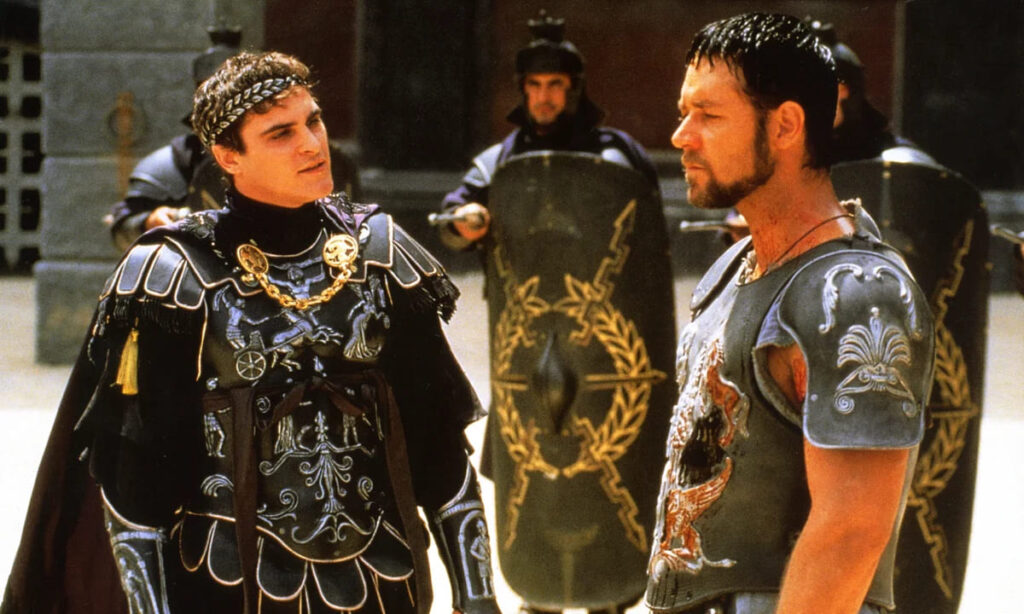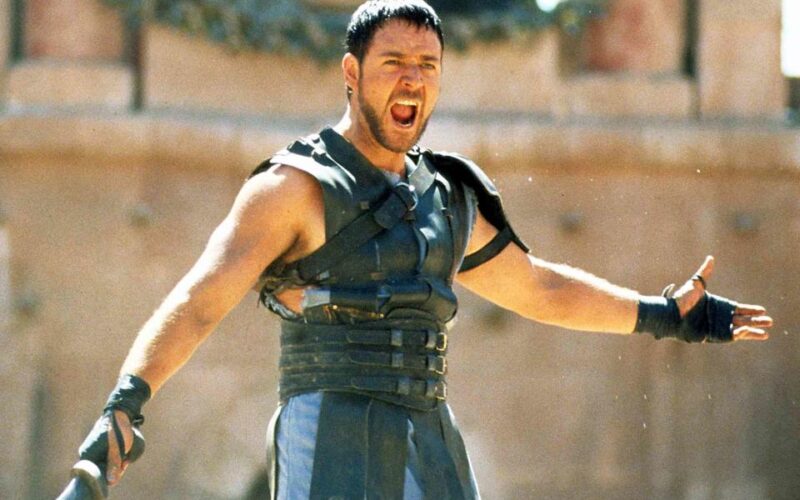As we mark the film’s silver anniversary, it’s the perfect time to look back at why Gladiator remains a towering achievement in epic storytelling.
At a time when historical dramas were largely considered box office poison, Gladiator proved that spectacle and substance could coexist. With Russell Crowe in a career-defining role, the film followed a betrayed Roman general who rises through the ranks of the gladiatorial arena to seek vengeance against the corrupt emperor who murdered his family. Crowe’s gravelly delivery of “Are you not entertained?” became instantly legendary, but it’s the emotional depth of his performance that lingers.
Scott, always a master of atmosphere, brought ancient Rome to life with grit and grandeur. The coliseum wasn’t just a stage for combat — it became a stage for justice, power, and personal redemption. The film’s combination of practical effects and then-groundbreaking CGI set a new standard for historical epics. Hans Zimmer and Lisa Gerrard’s haunting score gave Gladiator a soul, fusing sorrow and heroism in every note.

The film swept the 73rd Academy Awards with five Oscars, including Best Picture and Best Actor, and helped launch a new era of prestige blockbusters. Its influence is still felt today — in the way filmmakers approach large-scale drama, and in the enduring appetite for stories about honor, vengeance, and rebellion.
Rewatching Gladiator today, you’re struck not only by the brutality of the action but by the poetry of its quieter moments. The wheat fields. The outstretched hand. The dreams of a man who had everything taken from him, and who fought not just for revenge, but for memory.
As Ridley Scott prepares to return to this world with Gladiator 2, the legacy of the original looms large. Few films manage to be both blockbuster and art, myth and man, but Gladiator did — and still does.
So on this anniversary, raise a toast to Maximus. Father to a murdered son. Husband to a murdered wife. And a legend that, even 25 years on, refuses to die.









